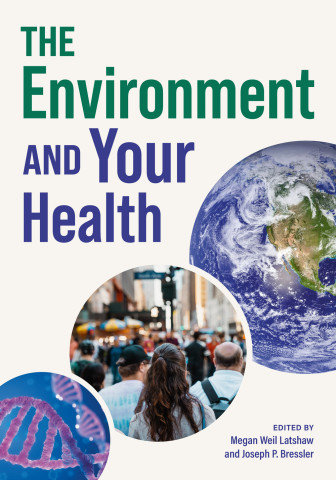
Reviews
Energy Humanities is an ambitious and stimulating collection that will assist the reader in understanding the importance of explicitly engaging with energy across the arts, humanities and social sciences. It is equally suited for undergraduate students and advanced academics who are interested in exploring the fecundity of interdisciplinary discussion and creative critique.
While the collection serves scholars in offering an organization of a specific context that is still emerging, and will most likely keep growing in importance in the 21st century, this publication will most definitely prove useful as a way to introduce students to the questions of energy as a specific subfield of the arts, humanities and social sciences.
Explore[s] ways of thinking and talking about the environment more creatively, aiming to circumvent our denial and despair, so that we may learn how to dwell on the things that are disappearing, and to carry on living in the world they leave behind.
A unique, wide-ranging collection edited by leading figures in the cross-disciplinary field of energy humanities. The contributions to this volume individually and collectively demonstrate the importance of understanding how the narratives surrounding energy shape policies as well as perceptions. Energy Humanities will help everyone from students to established scholars, concerned citizens, and policymakers see the problems associated with energy in a new way—potentially facilitating creative solutions.
Individually and collectively, the contributors to this unique volume attest to the consensus gathering across disciplinary fields that we can only solve our current energy and environmental dilemmas by granting humanities research a significant role in the conversation. The editors have selected significant works featuring concepts and models from a broad range of disciplines which promise to inspire new ways of thinking rather than simply codify received understandings. These essays are uniquely suited to supply professors with the pedagogical resources—teaching tools, influential texts, research questions, protocols of reading, and methodological approaches—needed to frame and organize energy humanities courses.
An excellent anthology that includes some of the best work in the field. Perfect for courses in energy humanities, ecocriticism, or environmental studies.
Book Details
Acknowledgements
Introduction: Imre Szeman and Dominic Boyer, "On the Energy Humanities"
Opening Image Set: Judy Natal
Amy De'Ath, "Institutional Critique"
Part I Energy and Modernity: Histories and
Acknowledgements
Introduction: Imre Szeman and Dominic Boyer, "On the Energy Humanities"
Opening Image Set: Judy Natal
Amy De'Ath, "Institutional Critique"
Part I Energy and Modernity: Histories and Futures
Section Intro
1. Dipesh Chakrabarty, "The Climate of History: Four Theses"
2. Imre Szeman, "System Failure: Oil, Futurity, and the Anticipation of Disaster"
3. David Nye, "The Great White Way"
4. Pablo Neruda, "Standard Oil Co."
5. Italo Calvino, "The Petrol Pump"
6. Stephen Collis, "Reading Wordsworth in the Tar Sands"
7. Hermann Scheer, "The Visible Hand of the Sun."
8. Naomi Oreskes and Erik M. Conway, "The Frenzy of Fossil Fuels"
9. Paolo Bacigalupi, excerpt from The Windup Girl
10. Margaret Atwood, "It's Not Climate Change, It's Everything Change"
Part II Energy, Power and Politics
Section Intro
11. Timothy Mitchell, "Carbon Democracy"
12. Dominic Boyer, "Energopower: An Introduction"
13. Jean-Francois Mouhot, "Past Connections and Present Similarities in Slave Ownership and Fossil Fuel Usage"
14. Michael Watts, "Imperial Oil: The Anatomy of a Nigerian Oil Insurgency"
15. John McGrath, excerpt from The Cheviot, the Stag and the Black, Black Oil
16. Gabrielle Hecht, "Nuclear Ontologies"
17. Gökçe Günel, "A Dark Art: Field Notes on Carbon Capture and Storage Policy Negotiations at COP 17"
18. Sheena Wilson, "Gendering Oil: Tracing Western Petrosexual Relations"
19. Cymene Howe, "Anthropocenic Ecoauthority: The Winds of Oaxaca."
20. Pope Francis, "Global Inequality"
21. Ken Saro-Wiwa, "Night Ride"
Part III Energy in Philosophy: Ethics, Politics, and Being
Section Intro
22. Allan Stoekl, "Bataille's Ethics"
23. Joseph Masco, "Atomic Health, Or How The Bomb Altered American Notions of Death"
24. Laura Watts, "The Draukie's Tale"
25. Timothy Morton, "A Quake in Being"
26. Martin McQuillan, "Notes Toward a Post-Carbon Philosophy"
27. Roy Scranton, "Learning to Die in the Anthropocene"
28. Dale Jamieson, "Ethics for the Anthropocene"
29. Claire Colebrook, "We Have Always Been Post-Anthropocene"
30. Karen Pinkus, excerpt from Fuel
31. Reza Negarastani, excerpt from Cyclonopedia.
Part IV The Aesthetics of Petrocultures
Section Intro
32. Amitav Ghosh. "Petrofiction: The Oil Encounter and the Novel."
33. Patricia Yaeger, "Literature in the Ages of Wood"
34. AbdulRahman Munif, Excerpt from Cities of Salt
35. Leslie Battler, poems from Endangered Hydrocarbons
36. Julia Kasdorf, poems from Shale Play
37. Stephanie LeMenager, "Petro-Melancholia: The BP Blowout and the Arts of Grief"
38. Jennifer Wenzel, "Petro-Magic-Realism: Toward a Political Ecology of Nigerian Literature."
39. Ursula Biemann and Andrew Pendakis, "This is Not a Pipeline: On the Politico-Aesthetics of Oil"
40. Adam Dickinson, excerpt from The Polymers
41. Warren Cariou, "An Athabasca Story"
42. Barry Lord, "The Culture of Stewardship"
43. Graeme MacDonald, "The Resources of Culture."
Closing Image Set: Marina Zurkow
References
Index





